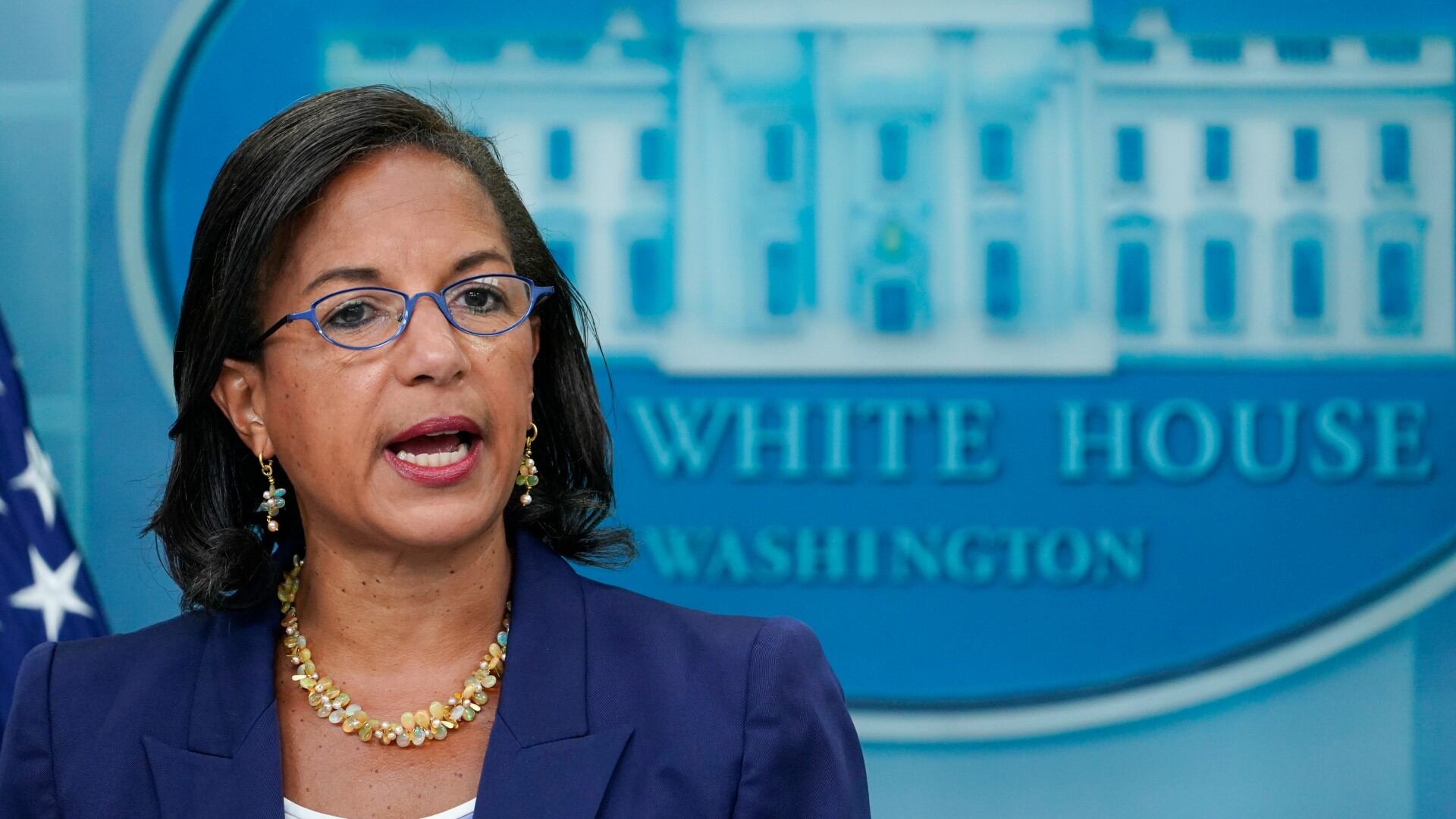President Joe Biden said Monday that his top domestic policy adviser, Susan Rice, will leave her post next month.
As director of the White House Domestic Policy Council, Rice had broad sway on the administration's approach to health care, immigration and racial inequality.
It was a surprising shift for Rice, a longtime Democratic foreign policy expert who served as President Barack Obama’s national security adviser and U.N. ambassador, the only person to serve in both positions. She worked closely with then-Vice President Biden in those roles and was on his short list to become his running mate during the 2020 campaign.
“After more than two years of her steady leadership of the Domestic Policy Council — it’s clear: there is no one more capable, and more determined to get important things done for the American people than Susan Rice,” Biden said in a statement announcing her departure.
Rice went into the job a flashpoint for Republican attacks dating back to the Obama years. In her wide-ranging tenure at the helm of Biden's domestic agenda, she helped oversee a flurry of executive and legislative action, including on health care, policing, gun safety, racial equity and the massive $1 trillion infrastructure bill.
“I am so proud of all we have been able to accomplish together for the American people,” Rice said in a tweet, in which she thanked Biden.
Rice, whose last day on the job will be May 26, also was a major player in the Biden administration's efforts to manage surging migrant numbers at the U.S.-Mexico border by turning away many migrants who crossed the border illegally. Instead, the U.S. has agreed to accept thousands of migrants per month as long as they come legally, have eligible sponsors and pass vetting and background checks. The decisions were seen as a shift to the right by some immigrant advocates who criticized the administration for moving away from promises to be more humane on immigration policies.
The next person named to the job will have a different focus. With a divided Congress and lower expectations for passing major legislation, the new domestic policy adviser will be working on implementing the policies.









